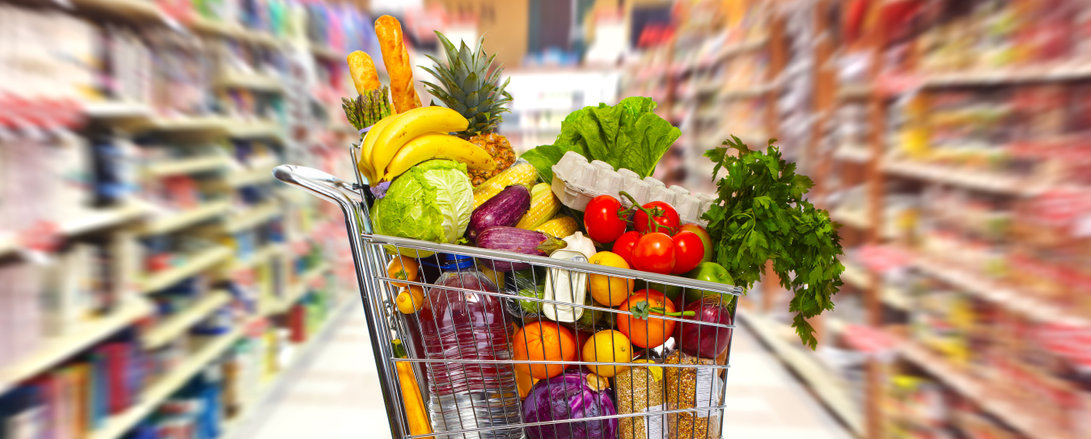What is Your Decision Strategy?
Shoppers have a shopping strategy. It is rare to visit a grocery store with no list, no ideas of what’s needed in your refrigerator or pantry, no idea of how much money you have to spend, no idea of your food preferences. You know if you are a vegetarian. You know if you eat dairy. You know if you purchase canned foods. You know where you like to shop and where you do not.
A vegetarian does not have to tell themselves not to buy meat. They don’t have to make a mental note to avoid the butcher. They don’t peruse the meat aisle and dream about what they would cook if only they were eating meat. Kroger, Meijer, Walmart, Aldi, Whole Foods, Trader Joes, Fresh Thyme. These are the grocers available in my area. I know where I want to shop. I know where the food that I want to eat is located. I don’t have to think about it.
Whether you know it or not, you also have a decision strategy. This strategy makes its presence known in every area of our lives. For example, your decision strategy for managing your phone might be to answer every text and ping every time one comes in. You may have decided that you do not answer calls from numbers you do not recognize. You might have a lunch decision strategy. You may almost always eat cheap fast food with the occasional salad drowned in ranch dressing. Or you may food prep and bring a thoughtful, nourishing meal with you to ensure your nutritional needs are met. You may turn your television on first thing in the morning. You may avoid media until the afternoon.
The thing is this. We have decision strategies we execute on purpose. And we have decision strategies enacted by the default of not having one. Back to shopping. You know what you want to eat and what you need to buy. You have preferred brands and know the prices you are willing to pay. How much more needed is a decision strategy for our lives? It is easy going through life acting as if we have an unlimited bank account filled with time—and however we choose to use it is fine because there is always tomorrow. When we live this way, we know what we want but we refuse to put it in our shopping cart. We know what we don’t want, and we accept it anyway.
We would never buy spoiled meat, right? That’s not a good value. But we will accept fewer nourishing relationships, less fulfilling jobs. Hang on to spoiled, rotting friendships. And we bring it all home with us, paid in full. If you accidentally bring home a food item with an expired date, woe be it unto the grocer. You will be getting your money back one way or another. If we purged our lives of our expired mentality, self-defeating behaviors, and time wasters, we would expand our time exponentially. If only we regard our lifetime as much as we regard our groceries.

But what do we do when we are inundated with infinite choices? We need to make the choice to make the most important decisions first –every single day of our lives. Because if we don’t, we will continue to make decisions without a strategy, by default.
Studies show that the more decisions we make in a day, the more likely we are to run out of steam. It is called decision fatigue. When we have too many choices, it leads to an overwhelming feeling, causing people to either make bad choices or shut down and do nothing. Having a routine limits the number of decisions you have to make each day, which increases your odds of doing the right thing.
The little things soak up our energy like a towel. There is a reason why inmates appearing before the parole board first thing in the morning are more likely to be approved for parole. It’s because as we approach the lunch hour, we run out of steam and interest because we’ve already made a ton of decisions and our minds have moved on. Real-life examples of decision fatigue have been described in studies.
For example, in 2011, Shai Danziger and Liora Avnaim-Pesso of Ben Gurion University and Johnathan Levav of Columbia University studied the various factors affecting the probability that Israeli prisoners who were going before a judge for a parole hearing would be set free.
After analyzing over 1,100 decisions over the course of a year, the researchers found that when it was time to decide if a prisoner should be granted parole, it wasn’t the crime committed, the length of the sentence, or the ethnicity of the offender that determined prisoner’s future.
Instead, the biggest influence seemed to be the time of day the prisoner stood in front of the judge. The prisoners who appeared later in the day were less likely to be released on parole than those who appeared in the morning.
The judges were not treating prisoners unfairly on purpose. They were actually experiencing decision fatigue. The mental work required to rule on case after case all day wore each judge down, weakening his or her ability to make a good decision.
This resulted in quick decisions that would make it easier for the judge at that moment, which was to deny parole to the prisoners appearing before him. Rather than agonizing over decisions, the judges would typically ease their mental strain by resisting change and keeping the prisoners locked up.
That speaks volumes to how we make decisions. We are making decisions that affect the quality and trajectory of our lives every single day. I encourage us all to take our decisions seriously so we do not squander our existence, but instead produce what we alone were designed to produce. Make decisions about you first, before facing someone else and their agendas. Do the things that you were sent here to do—first. We will not accomplish that if we are acting like vegetarians at the butcher counter. We won’t accomplish that if we are shopping at the wrong life grocer for products we know they don’t have.
What can you do right now to make better decisions?
Love, Peace, and Progress,
Tracey Alexandria Lynch
Follow me on: LinkedIn
#decisionstrategy #selfcare #timemanagement #personalcare #extremelybusy #lynchpinnedlife #change #selfimprovement #lifeplanning #consciousness
Questions Photo Credit: Olya Kobruseva from Pexels







